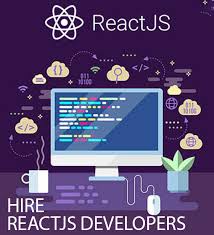In a rapidly expanding financial ecosystem, banking disputes have become increasingly common. From issues related to unauthorised transactions to loan defaults, customers and banks often find themselves navigating complex legal pathways. Understanding these disputes and how they are resolved is essential for consumers, bankers, and legal practitioners alike. This article explores the most frequent banking disputes in India, the legal framework governing their resolution, and how various authorities handle these matters.
Understanding the Landscape of Banking Disputes in India
The banking sector in India operates within a robust regulatory structure overseen by the Reserve Bank of India (RBI), the Banking Ombudsman, Debt Recovery Tribunals (DRTs), and consumer courts. Despite the strong framework, disputes arise due to the growing complexity of financial products, increasing reliance on digital banking, and the diversity of bank-customer relationships.
These disputes typically fall into categories such as unauthorised electronic transactions, loan recovery conflicts, incorrect credit reporting, mis-selling of financial products, service deficiencies, and issues related to account closure or cheque dishonour. Many of these conflicts escalate due to information gaps, poor communication, ora lack of awareness about legal rights and remedies.
1. Unauthorised Electronic Transactions
As digital banking transactions surge, so do complaints about unauthorised withdrawals, fraudulent UPI transfers, and misuse of debit or credit cards. These disputes often stem from phishing attacks, data breaches, or customer negligence.
How They Are Resolved
RBI guidelines clearly define the liability of customers and banks in such cases. Once a customer notifies the bank of an unauthorised transaction, the bank must investigate promptly. If the customer is not at fault, the bank must refund the amount within a prescribed timeline.
Disputes unresolved at the bank level can be escalated to:
- Banking Ombudsman
- RBI Integrated Ombudsman Scheme
- Consumer Forums (for deficiency in service)
Banking law books often provide detailed explanations of these liability guidelines, making them invaluable for students and practitioners dealing with cyber fraud matters.
2. Loan Defaults and Recovery Disputes
Loan recovery disputes arise when borrowers fail to repay loans and banks initiate recovery actions. Issues typically involve loan restructuring, interest calculation, seizure of collateral, harassment by recovery agents, or disagreements over settlement terms.
Legal Mechanisms for Resolution
- SARFAESI Act:
Enables banks to seize secured assets of defaulters without court intervention. Borrowers can challenge such actions before the Debt Recovery Tribunal (DRT). - Debt Recovery Tribunals (DRTs):
Specialised tribunals focusing solely on recovery cases exceeding a minimum threshold. - Lok Adalats:
Used for amicable settlement of small outstanding loans.
Banking law books comprehensively cover the SARFAESI Act and DRT procedures, helping borrowers, lawyers, and bankers understand their rights clearly.
3. Cheque Dishonour and Section 138 Cases
Cheque dishonour is another common banking dispute that often leads to criminal prosecution under Section 138 of the Negotiable Instruments Act. The dishonour may be due to insufficient funds, a signature mismatch, or other reasons.
Resolution Process
- The payee must issue a statutory demand notice within 30 days.
- If the drawer fails to pay within 15 days, the payee can file a complaint before the Magistrate.
- Such cases often end in a settlement rather than a full trial.
Since cheque dishonour cases follow a strict statutory procedure, legal professionals frequently consult authoritative banking law books to handle these matters efficiently.
4. Disputes Regarding Mis-Selling of Financial Products
Banks often cross-sell insurance, credit cards, investment plans, and other products to customers. Mis-selling occurs when customers are misled or misinformed about product features or financial implications.
How These Disputes Are Resolved
- Complaints can be filed with the bank’s grievance redressal mechanism.
- For insurance-linked issues, customers may approach the Insurance Ombudsman.
- Consumer Courts can also adjudicate mis-selling complaints.
Mis-selling cases require careful analysis of product terms, disclosures, and sales practices. Lawyers often rely on authoritative banking law books for precedents on financial misrepresentation.
5. Disputes Related to Credit Scores and Reporting
Incorrect loan accounts, outdated repayment information, or clerical errors by banks can severely affect a customer’s creditworthiness.
Resolution Mechanism
Customers must first raise disputes with credit information companies like CIBIL, Experian, or Equifax. If the issue stems from a bank error, the bank must correct the records promptly. Failure to do so can be taken up before:
- RBI Ombudsman
- Consumer Forums
- Civil Courts (in rare cases)
Understanding credit reporting norms and consumer rights becomes easier with the help of dedicated banking law books.
6. ATM-Related Disputes
ATM failures, cash not dispensed but amount debited, and ATM card skimming are frequent complaints.
Legal Recourse
RBI mandates that banks resolve such complaints within a defined period. If unresolved, customers can escalate the matter to:
- Banking Ombudsman
- Consumer Courts
7. Service-Related Disputes
These include issues such as:
- Excessive service charges
- Inaccurate interest calculation
- Non-updation of KYC
- Delayed issuance of statements or certificates
These often fall under “deficiency in service” and can be resolved through the internal grievance mechanism or consumer forums.
Legal Forums Available for Banking Dispute Resolution
Bank’s Internal Grievance Mechanism
The first step, where most disputes are resolved through customer care or grievance officers.
RBI Integrated Ombudsman Scheme
Covers complaints related to most retail banking services, including digital payments.
Consumer Courts
Handle cases of deficiency in service and unfair trade practices by banks.
Debt Recovery Tribunals (DRTs)
Focus on loan and recovery disputes involving banks and financial institutions.
Civil Courts
Approached only when disputes fall outside special statutes or involve complex contractual issues.
LexisNexis
For readers, law students, and legal practitioners seeking to dive deeper into concepts relating to banking disputes, LexisNexis offers a vast collection of authoritative banking law books. These books cover major legislations such as the Banking Regulation Act, SARFAESI Act, DRT Act, Negotiable Instruments Act, and emerging issues in digital banking regulation. LexisNexis titles are trusted across courts, universities, and legal offices for their reliability, detailed commentary, and updated statutory references. Anyone studying or practising banking law will find these resources indispensable for strengthening their understanding.
Conclusion
Banking disputes in India cover a wide spectrum, from digital fraud to loan recovery issues. Fortunately, the legal framework provides several mechanisms to address these disputes fairly and efficiently. Whether through the Banking Ombudsman, DRTs, consumer courts, or statutory processes like Section 138 cases, customers and banks both have structured routes to resolve conflicts. With the rising complexity of financial transactions, understanding these procedures has become more important than ever. Comprehensive banking law books, especially those offered by LexisNexis, play a vital role in equipping stakeholders with the knowledge needed to navigate this evolving landscape.


